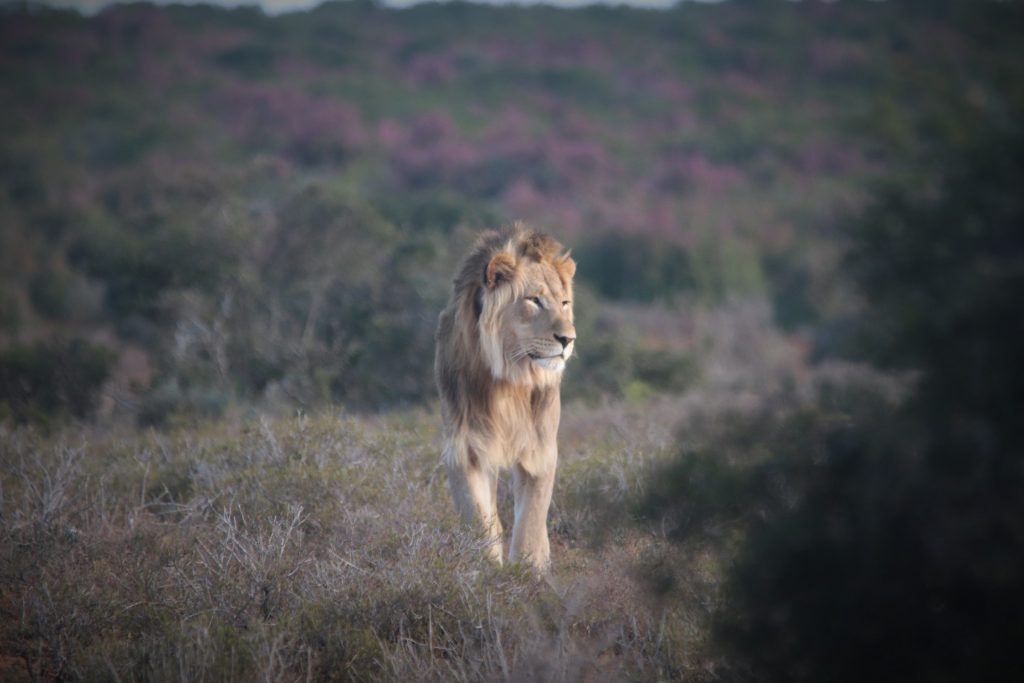
By guest blogger Garry
We all know the story of Jack and Jill. But what happened once the events of the nursery rhyme were over has been a mystery, at least until now. Well, wonder no more – Travel Africa can now reveal that Jack and Jill are alive and well, and living in Addo Elephant National Park in southern South Africa.
Jack and Jill are two 4 year old lions, brother and sister. Their mum died earlier this year but they are thriving in Addo Elephant National Park, two of only seven lions in this park. Normally locating such a small number of lions in such a large park would be like finding the proverbial needle in a haystack. But not these guys. In the three days we spent in the park, we came across them on four separate occasions.
Now it’s not unusual to see lions in the distance. They’re lying down next to a bush, you can only glimpse them through binoculars, and after sitting patiently for an hour you realise it’s not going to be your day – they’re not going anywhere. But here we were truly blessed. On each occasion, after waiting patiently, one or the other would raise themselves, survey their domain, and slowly and methodically pad down to the road where we waited breathlessly, cameras poised.
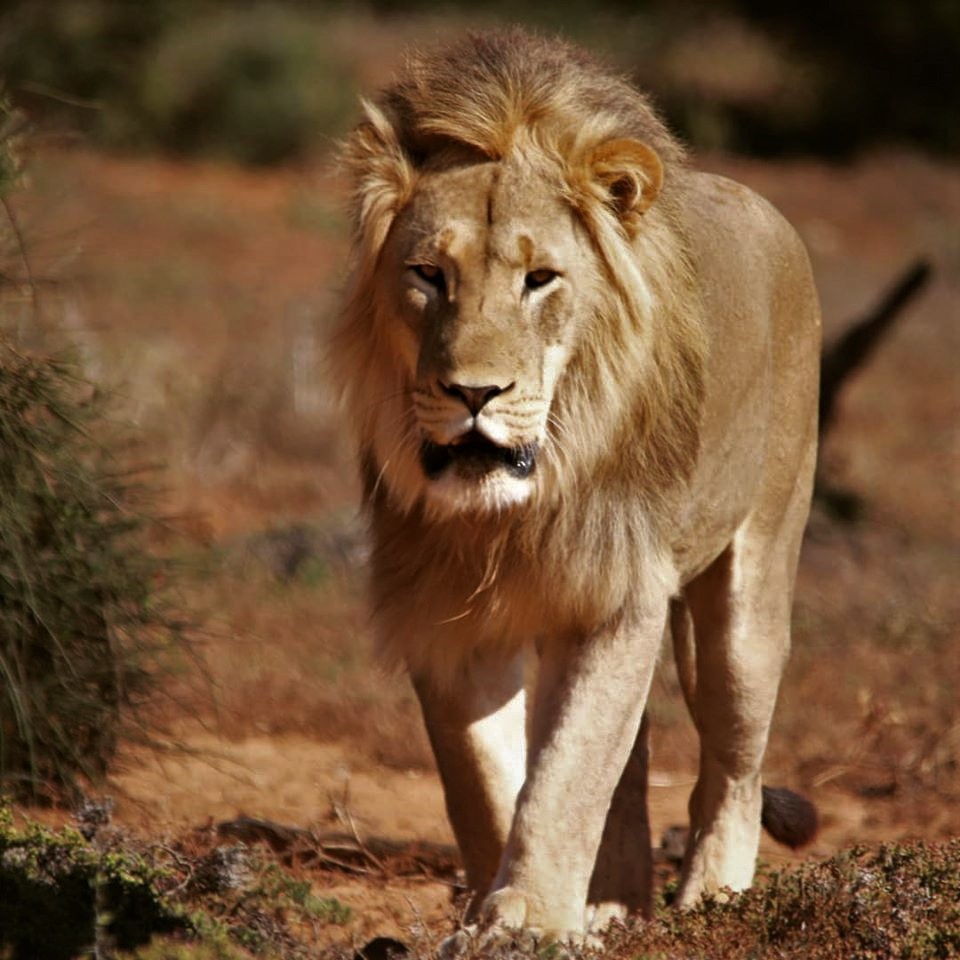
Often they spent time apart. There seemed to be a swathe of land that the two patrolled, each within calling distance of the other. Jack, with his beautiful blonde mane, looking like Fabio in his prime, spent a lot of his time yawning and stretching. As is the case with lions and humans alike, Jill, the female, seemed more alert. Each had a collar around their neck, so that the local researchers could monitor their whereabouts.
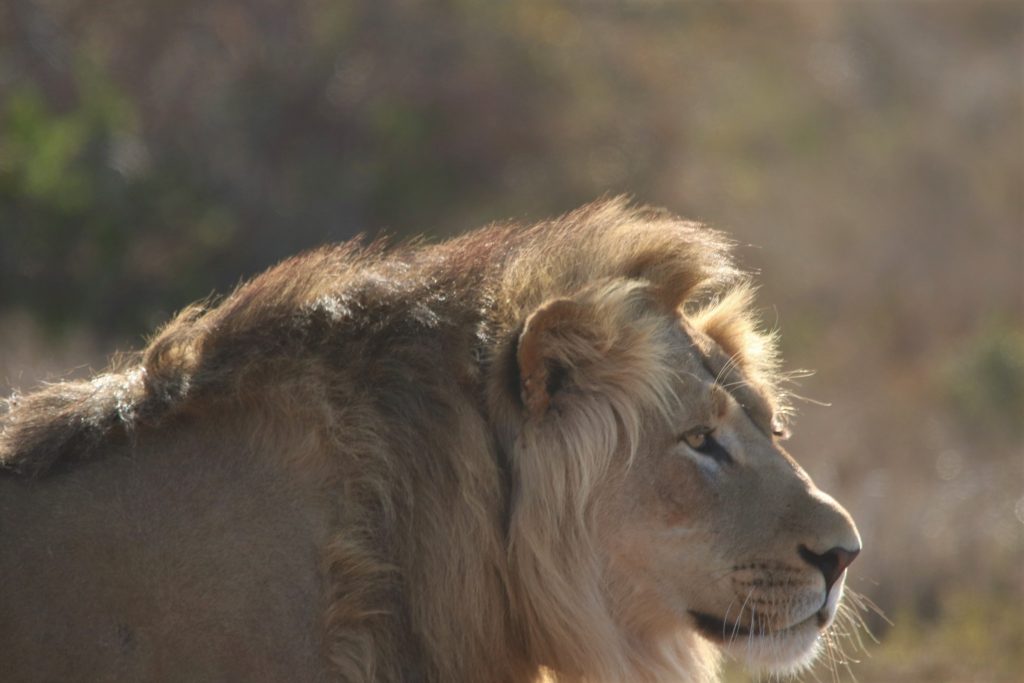
Other times they were together. One afternoon they cuddled in the grass. Jill playfully stretched out her legs while Jack nuzzled her throat. They resembled nothing more than a mating pair, and sure enough, a guide confirmed that this was not unlikely. With such a small number of lions in the park, it’s inevitable that siblings ultimately mate, and the planned introduction of new lions into the park must take into account both inter-breeding of existing pairs, and the delicate balance of carnivores and herbivores currently in the park.
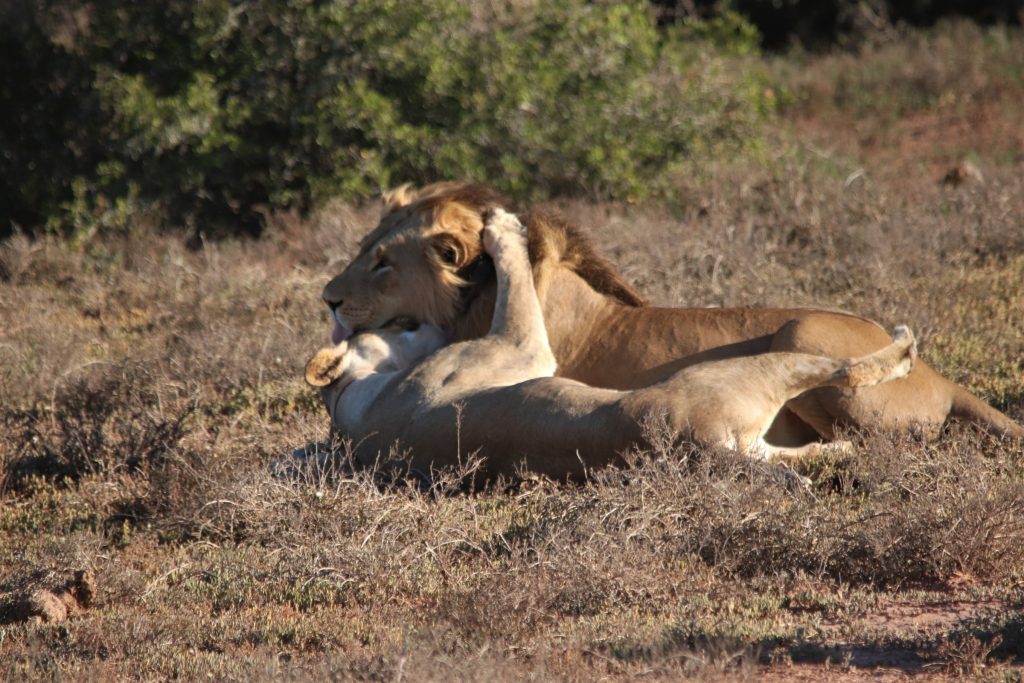
A night drive on our second night took us right up to them as they lazed in the dark. The following day we saw them twice. In the morning, Jack walked up to the road and crossed in front of us, after an hour where we watched him in the distance. The same thing happened in the afternoon at a different location. And heading in a particular direction after crossing the road, there followed a frantic drive to another road in the distance, hoping that he would continue his trajectory and we would meet him again. There were groups of us in two vehicles, and we took great pleasure in being the first to spot him, or failing that, beat the other car to his new location.
And as we raced around trying to intercept Jack, there was Jill, sitting on the hill behind the dam, far too proud to acknowledge the human throng goggling at her from behind their lenses. What was going through her mind was not clear, but one thing is for sure. Once the sun set, and the cars packed up and left, she’d be up and together again with her beautiful brother Jack, the king and queen of Addo Elephant National Park.
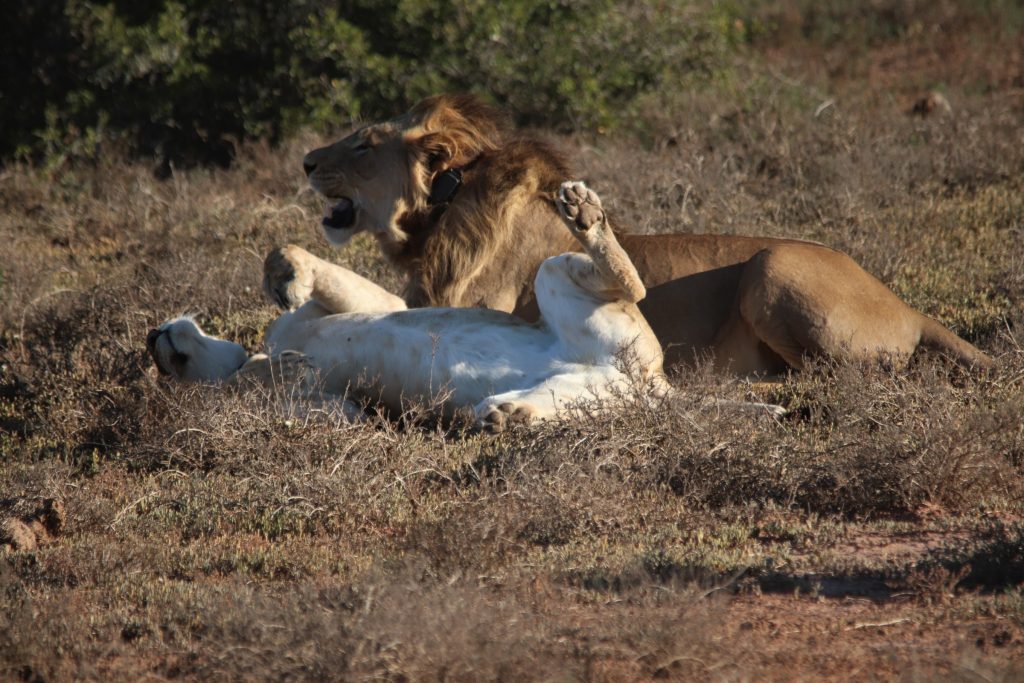
Addo Elephant National Park is including in the following itineraries:
